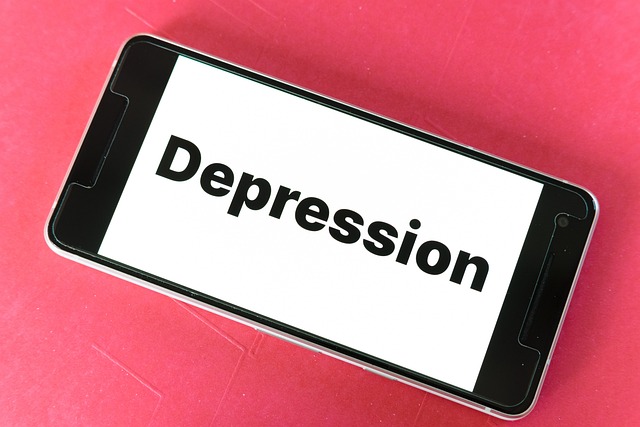TL;DR:
CBT therapy is an evidence-based approach that equips individuals with practical tools to manage stress, anxiety, and other mental health challenges through techniques like relaxation strategies, problem-solving, and assertiveness. This enhances well-being, reduces reliance on medication, and promotes healthier coping mechanisms. Integrating CBT into daily practices involves cognitive restructuring, mindfulness exercises, and stress management strategies. BCST specifically focuses on replacing unhealthy coping mechanisms with adaptive behaviors, building resilience, and tracking progress through goal setting and evaluation. Celebrating success reinforces positive behavioral changes and encourages continued engagement in therapy.
Behavioral Coping Skills Training (BCST) is a powerful tool for enhancing mental well-being. This article explores the comprehensive approach of BCST, highlighting its key components and benefits. We delve into the fundamentals, including the role of Cognitive Behavioral Therapy (CBT) in mental health support. By understanding unhealthy coping mechanisms, readers will learn to develop effective replacement behaviors and stress management techniques. Integrating CBT into daily life practices fosters resilience and emotional regulation, ultimately leading to improved mental health outcomes.
Understanding Behavioral Coping Skills Training

Behavioral coping skills training is a form of psychotherapy that focuses on helping individuals understand and modify their emotional responses through observable behaviors. It’s rooted in Cognitive Behavioral Therapy (CBT), which identifies the connection between thoughts, feelings, and actions. By learning specific techniques, people can effectively manage stress, anxiety, and other mental health challenges without relying heavily on medication or therapy sessions.
This training equips individuals with practical tools to cope with difficult emotions and situations. It involves teaching relaxation strategies, problem-solving skills, and assertiveness training, among others. These skills empower people to navigate life’s challenges more adaptively, enhancing their overall well-being and quality of life.
The Role of CBT Therapy in Mental Health Support

CBT therapy plays a pivotal role in mental health support, offering a structured and evidence-based approach to addressing various psychological challenges. This form of therapy focuses on identifying and modifying unhelpful thought patterns and behaviors, empowering individuals to develop healthier coping mechanisms. By helping people challenge negative thoughts and beliefs, CBT enables them to manage symptoms associated with anxiety, depression, and other mental health disorders effectively.
The effectiveness of CBT lies in its ability to equip individuals with practical tools for navigating life’s stressors. Through a series of conversations with a trained therapist, clients learn to recognize triggers, understand the connection between thoughts, feelings, and behaviors, and replace unhelpful strategies with more adaptive ones. This process fosters self-awareness, resilience, and improved mental well-being, making CBT a valuable asset in the realm of mental health support.
Identifying Unhealthy Coping Mechanisms

Many people have developed unhealthy coping mechanisms over time, often as a result of trauma or prolonged stress. Identifying these unhelpful patterns is a crucial step in behavioral coping skills training (BCT). Common unhealthy coping strategies include substance abuse, emotional eating, self-harm, avoidance behaviors, and isolation. These habits may provide temporary relief but can lead to more significant issues down the line.
CBT therapy helps individuals recognize when they’re engaging in these unhealthy mechanisms and offers alternative, more adaptive ways to cope with difficult emotions or situations. By understanding the triggers and patterns behind their coping behaviors, individuals can begin to replace them with healthier alternatives that support their overall well-being.
Developing Effective Replacement Behaviors

Developing effective replacement behaviors is a core aspect of Behavioral Coping Skills Training (BCST), often integrated into Cognitive Behavioral Therapy (CBT) practices. This involves identifying unhelpful habits or responses and substituting them with more adaptive ones. For instance, someone struggling with anxiety might replace avoidance behaviors with exposure therapy techniques. By gradually facing feared situations, individuals recondition themselves to manage anxiety effectively.
The process encourages individuals to learn new skills that better serve their emotional needs. BCST teaches the art of mindfulness, relaxation techniques, and problem-solving strategies, all of which become powerful tools in one’s coping arsenal. These replacement behaviors are tailored to each individual’s unique challenges, fostering a sense of empowerment and self-efficacy in managing stress and adversity.
Techniques for Stress Management and Emotional Regulation

Stress management is a key component of Behavioral Coping Skills Training (BCST), drawing heavily from Cognitive Behavioral Therapy (CBT) techniques. BCST encourages individuals to identify and challenge negative thought patterns that can contribute to heightened stress levels and emotional dysregulation. By replacing these with more positive, balanced thoughts, individuals gain greater control over their emotional responses. Techniques like cognitive restructuring, mindfulness exercises, and relaxation practices are integral to this process.
Cognitive restructuring involves identifying distorted thinking and replacing it with more realistic, adaptive beliefs. Mindfulness encourages focusing on the present moment without judgment, helping to calm the mind and reduce anxious thoughts. Relaxation practices such as deep breathing, progressive muscle relaxation, and yoga can physically lower stress levels and promote emotional stability. These tools empower individuals to navigate challenging situations with greater composure and resilience.
Integrating CBT into Daily Life Practices

Integrating Cognitive Behavioral Therapy (CBT) into daily life practices is a powerful way to sustain mental health and well-being. CBT involves identifying and challenging negative thought patterns, replacing them with more realistic and positive ones, and learning effective coping strategies. By practicing these techniques regularly, individuals can transform their reactions to stress, anxiety, or difficult emotions. For instance, mindfulness exercises, a key component of CBT, help individuals focus on the present moment, reducing rumination on past events or worry about the future.
This integration isn’t merely theoretical; it empowers individuals to face challenges head-on. Simple daily habits like keeping a thought journal can facilitate the identification and modification of negative thoughts. Additionally, regular practice of relaxation techniques, such as deep breathing exercises, enhances one’s ability to manage stress effectively. As these strategies become ingrained in daily routines, they foster resilience, enabling individuals to navigate life’s ups and downs with greater ease and emotional balance.
Practicing Mindfulness and Cognitive Reframing

Practicing mindfulness and cognitive reframing are key components of behavioral coping skills training, often integrated within CBT therapy. Mindfulness encourages individuals to focus on the present moment, acknowledging their thoughts and feelings without judgment. This simple yet powerful technique helps to calm the mind, reduce stress, and improve emotional regulation. By observing their experiences non-reactively, individuals can gain a clearer perspective and develop a healthier relationship with their emotions.
Cognitive reframing involves identifying and challenging negative or distorted thought patterns. It teaches people to recognize unhelpful cognitive distortions, such as all-or-nothing thinking or catastrophizing, and replace them with more balanced and realistic thoughts. This process empowers individuals to change their perception of situations, leading to a shift in emotional response. As a result, they become equipped to handle challenges more effectively, fostering resilience and improving overall well-being.
Building Resilience Through Behavioral Coping Skills

Building resilience is a key aspect of well-being, and Behavioral Coping Skills Training (BCST) offers a powerful approach to enhance this. This therapeutic method focuses on teaching individuals effective strategies to navigate through challenging situations. By learning and practicing specific behavioral coping skills, people can develop greater emotional resilience, allowing them to bounce back from setbacks and stress with ease.
CBT therapy, at the heart of BCST, equips individuals with tools to challenge negative thought patterns and replace them with healthier, more adaptive behaviors. Through structured training, participants acquire a range of skills such as problem-solving, relaxation techniques, and stress management strategies. These skills enable individuals to better regulate their emotions, make sense of difficult experiences, and respond to challenges in constructive ways, ultimately fostering a stronger sense of resilience and well-being.
Measuring Progress and Celebrating Success

Measuring progress is a vital aspect of behavioral coping skills training (CBT), allowing individuals to track their development and cultivate a sense of accomplishment. This process involves setting specific, achievable goals and regularly assessing one’s behavior and thoughts. Therapists often utilize structured assessments or questionnaires to gauge changes in symptoms, mood, and overall functioning. By comparing initial assessment results with subsequent ones, clients can visually observe their progress, fostering motivation and a positive feedback loop.
Celebrating success is an integral part of maintaining momentum and reinforcing positive behaviors. CBT emphasizes recognizing and rewarding small victories along the journey. This could involve marking milestones on a visual chart, journaling achievements, or simply acknowledging personal growth during therapy sessions. Acknowledging these successes helps individuals stay focused, boosts self-confidence, and reinforces the effectiveness of their coping strategies, encouraging continued engagement in the training process.
